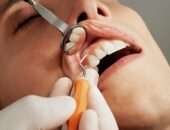Going to the dentist can sometimes feel like taking your car in for a service. You’re still trying to figure out what to ask, and you hope it doesn’t end up costing an arm and a leg. But, much like taking care of your vehicle, looking after your teeth is critical—and that means making the most of your dental visits. So, what should you be chatting about in the dentist’s chair? Here’s your roadmap of questions to keep your smile not just beaming but healthy, too.
1. Background and Expertise
-
What are your qualifications, and how long have you been practicing?
-
Do you have any areas of specialty?
-
How do you keep up with the latest dental techniques and technologies?
Selecting a trusted dentist in Hamilton is about more than just who’s got the friendliest receptionist or the least intimidating-looking equipment. It’s about finding a professional you can trust and feel comfortable with. A good dentist should not only be skilled but also ready to answer any questions you have and address concerns with patience and clarity.
2. Office Protocol and Care
-
Can you walk me through your sterilization process?
-
What is your approach to preventive dentistry?
-
How do you determine the need for x-rays, and how often?
3. Dental Checkups and Teeth Cleaning
Now, let’s dig into your routine visit— dental checkup and cleaning. This is the bread and butter of maintaining a great oral health regimen, and there’s more to it than just showing up and lying back.
-
What exactly are you checking for during a dental exam?
-
How can I tell if I’m doing a good job with my at-home oral care?
-
What are the signs of healthy vs. unhealthy gums?
Schedule a dental checkup in Hamilton and reap the benefits of this dental service.
4. Personalized Advice
-
Am I brushing and flossing correctly?
-
Could my diet be affecting my dental health?
-
What specific products do you recommend for my teeth and gums?
5. Potential Concerns
Dental checkups can sometimes uncover other issues—and it’s paramount to have an open line of communication about them. Whether it’s needing a filling, tackling gum disease, or even straightening your teeth, you have the right to know all the ins and outs.
-
Have you noticed any signs of decay or damage, and what can we do about it?
-
Are there any cosmetic procedures that could improve the look of my teeth?
-
What options are available to manage dental anxiety and pain?
-
How long will the expected treatment take, and what is the recovery like?
6. Emergencies and Expectations
Accidents happen, and when they involve your teeth, it’s never convenient. That’s why having a plan for urgent dental care in Hamilton, GA, is a must. Whether it’s a knocked-out tooth or a severe infection, you should know your dentist’s protocol.
-
How quickly can I be seen in an emergency?
-
What kind of symptoms warrant an emergency visit?
7. Surgical Procedures
If it turns out you need surgery:
-
What surgical options do you offer at your practice?
-
What should I expect during and after a dental surgery?
8. Planning for the Future
Your dental health journey is ongoing. Ensuring you’re on the same page as your dentist about your future treatment plans is just as important as addressing your current needs.
-
How can I continue to improve my dental health?
-
Can you help me create a long-term dental care plan?
9. Financial Considerations
Finally, let’s not forget about the cost:
-
Can you provide a clear breakdown of costs for proposed treatments?
-
Do you offer payment plans or financing options?
-
Are there any less expensive alternatives to the treatments you’ve recommended?
Components of a Dental Checkup
-
Medical History Review: The dentist will review your medical history, including existing conditions and medications, to provide safe and tailored care.
-
Examination of Teeth: Teeth are visually inspected for decay, wear, or damage, along with checking existing restorations for integrity.
-
Gum Health Evaluation: Gum health is assessed for signs of inflammation and measured for pocket depth to evaluate gum tissue health.
-
Oral Cancer Screening: Soft tissues of the mouth are examined for abnormalities or lesions to detect oral cancer early.
-
X-rays (if necessary): X-rays may be taken to detect hidden dental problems such as cavities, bone loss, or impacted teeth.
-
Professional Cleaning (Prophylaxis): Plaque and tartar are removed from teeth, and surfaces are polished to maintain oral hygiene.
-
Oral Hygiene Instructions: Guidance on proper brushing, flossing, and product use is provided for home care.
-
Treatment Planning: Based on findings, a personalized treatment plan is developed, including follow-up appointments for necessary care.
Final Thoughts
Talking to your dentist shouldn’t feel like pulling teeth. By asking these questions, you’re taking charge of your dental health, and your dentist will likely appreciate your proactive approach. Remember, knowledge is the power that helps you chew your way through life with confidence and a sparkling smile. Maintaining a healthy grin isn’t just about brushing and flossing. It requires a partnership with a dental professional who can guide you along the way.



